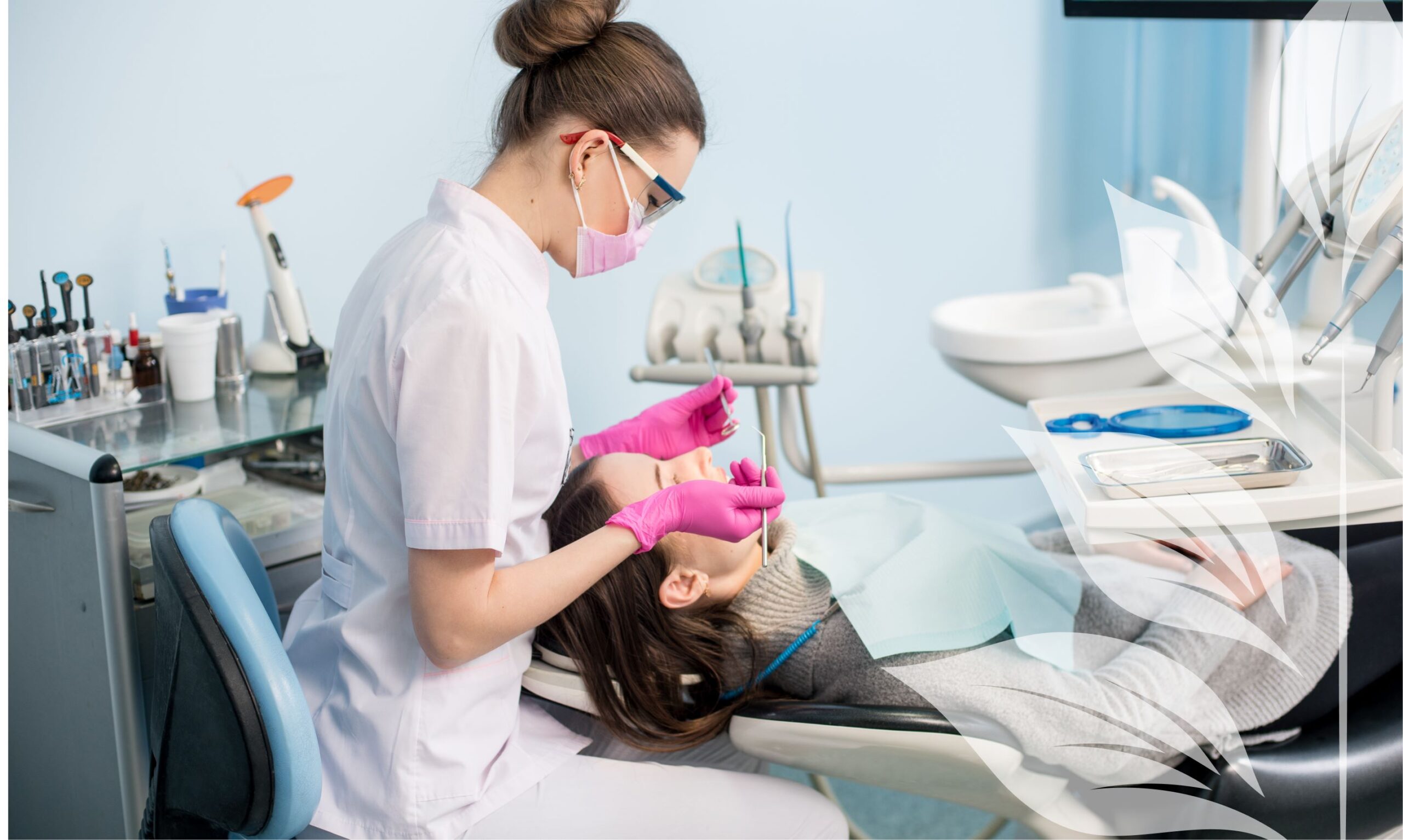Gingivitis affects around 90% of people around the world. It’s a condition that usually develops as a result of poor oral hygiene and can progress to a more serious condition—periodontitis.
By getting treatment as soon as you notice symptoms, you can prevent the problem from worsening. But what is gingivitis, and how do you know if you have it? Get the answers you need from our dentist office in Hampton, GA.
What is gingivitis?
Gingivitis is the earliest stage of gum disease. “Gingiva” means “gum tissue,” and “itis” means “inflammation,” so gingivitis translates to “inflammation of the gum tissue.” It develops when plaque, a film made of bacteria and food particles, builds up on your teeth and develops into tartar.
If not treated, gingivitis progresses and becomes periodontitis. Periodontitis is a serious gum infection that damages the tissues surrounding teeth. Periodontics is the treatment of diseases affecting the structures that support teeth.
Signs of Gingivitis
Gingivitis appears with several symptoms. Contact a dentist if you experience the following:
- Swollen gums.
- Bleeding gums when flossing or brushing.
- Red or purple gums.
- Sensitivity to hot and cold foods/drinks.
- Tenderness or pain when chewing.
- Gum recession.
- Changes in gum color.
The biggest problem with early gingivitis is that the symptoms are not always obvious. Unless you get frequent check-ups with your dentist, you may not notice you have this inflammation until it’s progressed to periodontitis.
4 Dangers of Leaving Gingivitis Untreated
If you notice signs of gingivitis, you need to act fast to get treatment so you can stop the disease from progressing.
Gingivitis is simple to treat and usually involves improving your oral hygiene routine, including flossing every day. In some instances, it can also mean reducing the amount of sugary or acidic foods and drinks you consume since these harm your tooth enamel.
It’s important you consult your dentist to avoid these 4 conditions.
1. Progression to Periodontitis
One of the most crucial reasons to get prompt treatment for gingivitis is that it can quickly progress to periodontitis. Once the plaque becomes tartar and settles under your gum line, it starts affecting your jawbone, making treatment more complex.
In the early stages of periodontitis, you may notice your gums pulling away from your teeth and creating pockets. Bacteria and plaque slip into these pockets, where your toothbrush and floss can’t reach them.
The disease then progresses and starts eroding the ligaments in the area, as well as other tissues and bone. At this stage, you may develop a periodontal abscess or experience pain.
The treatment of periodontitis is more complex than gingivitis. It requires deep dental cleaning, including scaling and root planing.
2. Bone Density Loss
Once gingivitis becomes periodontitis, bone loss begins. Bacterial toxins begin eating away at the bone and ligaments. Your immune system will attempt to fight the infection, but that won’t prevent bone loss. When you have periodontitis, your gums no longer protect your jawbone, so the bacteria will continue to destroy the area.
3. Tooth Loss
As your jawbone disintegrates, your teeth no longer have the support they need to remain firmly in place. They will begin moving and then fall out.
Tooth loss makes the bone loss worse. Your jawbone depends on the roots of your teeth to provide the stimulation it needs to create new bone cells, so when a tooth falls out, that stimulation is no longer there and the bone begins to be reabsorbed.
4. Connection to Systemic Health Conditions
Advanced gum disease also puts you at risk of systemic health conditions. The inflammation present with periodontitis can also cause inflammation in other areas. Bacteria are able to enter the bloodstream through the damaged oral structures and spread throughout the body.
Periodontitis has been connected with health conditions like diabetes because diabetes can cause higher blood sugar levels in your mouth, aiding acid production in your mouth. It can also cause cardiovascular disease because it can promote atherosclerosis (hardening of the arteries). All of this is the result of inflammation.
Get Help for Signs of Gingivitis
If you have noticed your gums changing color, swelling, or bleeding more easily, turn to Allred Family Dentistry for help. Our dentist office in Griffin, GA, is ready to provide the guidance you need to manage gum disease and other oral health concerns.
An important aspect of maintaining oral health is to get regular check-ups. This regular care is particularly vital when dealing with the early stages of gum disease since symptoms are not always easy to spot.
Don’t wait to schedule your appointment to ensure your gums are in good shape. Contact Allred Family Dentistry today to make an appointment with our dental experts.





